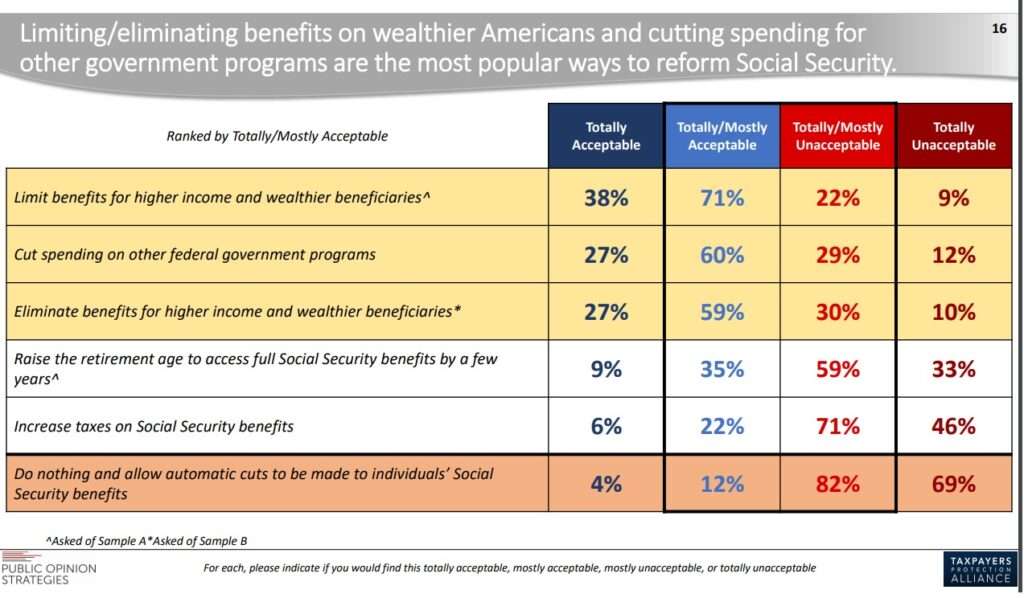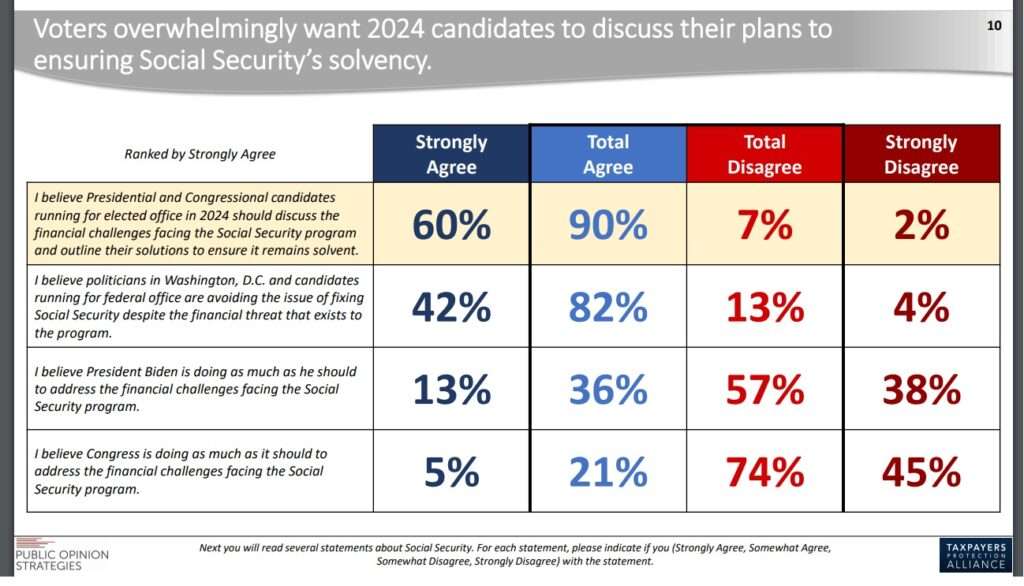87% of Americans Want Politicians To Do Something Before Social Security Runs Out of Money
Entitlement reform has long been considered a third rail in American politics, but that perspective might be changing.

Entitlement reform has long been considered a third rail of American politics, even as the insolvency of Social Security and Medicare creeps closer.
That perception might need some reconsidering. A new poll shows that the vast majority of Americans believe policymakers should make changes as soon as possible to extend the life of America's two old-age entitlement programs and avoid possible benefit cuts that will hit in the early 2030s if nothing is done.
That poll, which was shared with members of Congress and staffers at a closed-door meeting on Wednesday morning and obtained by Reason, found that only 5 percent of voters say Congress and President Joe Biden should do nothing to address the looming benefit cuts that will hit Social Security when insolvency hits.
"Our polling shows that Americans are seriously worried about the solvency of these entitlement programs," David Williams, president of the Taxpayers Protection Alliance (TPA), a free market group that sponsored the survey (it was conducted in August and included about 1,000 likely voters). "Congress can no longer continue to ignore the facts that without action, Social Security and Medicare will face deep and automatic cuts."
Indeed, the poll suggests that many Americans have a better understanding of the crisis facing Social Security and Medicare than most elected officials seem to believe. In the survey, 87 percent of respondents agreed that action is needed to extend Social Security's solvency and avoid benefit cuts, and 89 percent said the same thing about Medicare.
According to the trustees responsible for overseeing the two programs, Medicare's main trust fund will be depleted by 2031 and Social Security's reserves will be gone by 2033. Though those trust funds are largely an accounting fiction, their insolvency will trigger mandatory across-the-board cuts that will affect retirees and anyone who expects to benefit from the programs in the future. The two programs are also the primary drivers of the federal government's future budget deficits, responsible for 95 percent of long-term unfunded obligations, according to the Treasury's recent Financial Report. Those looming problems are contributing to the federal government's declining credit rating and threaten America's future economic growth.
Despite that, leading politicians on both sides of the aisle continue to promise that inaction is possible. Biden has used fictional Republican plans to cut Social Security to demagogue against the idea that reforms to the program are necessary—most notably by sparring with GOP members of Congress during this year's State of the Union address. Meanwhile, former President Donald Trump (the leading contender to be the GOP's presidential nominee in 2024) has repeatedly promised not to touch Social Security, and other prominent figures on the so-called "New Right" have done the same.
Realistically, the only serious approach will require some changes to existing Social Security benefits. That could mean reducing benefits for wealthier retirees or implementing across-the-board benefit reductions that would be phased in over time, allowing younger workers to offset smaller Social Security benefits with private savings. Ideally, workers would be able to opt out of Social Security altogether, so they can save and invest for their own retirement without having to pay payroll taxes.
But none of those options can begin to be considered if a critical mass of elected officials continue to ignore the problem.
The TPA poll released Wednesday offers some insight into how more serious politicians might proceed. The poll found that 71 percent of Americans find means-testing for Social Security benefits—that is, limiting benefits for wealthier recipients—to be acceptable, while 60 percent would approve of cutting other government programs to fund Social Security.

When it comes to Medicare, 66 percent approve of means-testing benefits, and 84 percent are in favor of the always-popular option of reducing rampant fraud and waste within the government-run healthcare system.
Perhaps most importantly, 90 percent of voters say presidential and congressional candidates running for office in 2024 should discuss the financial challenges facing the entitlement programs. They might take note of former South Carolina Gov. Nikki Haley's rise in the Republican primary field, which has followed her willingness to provide some straight talk about the difficult fiscal situation that the government must face.

Finding solutions to these highly fraught issues that voters will accept is no easy task, but it can't start until politicians recognize that ignoring the government's entitlement-driven debt crisis is not a real option.


Show Comments (145)